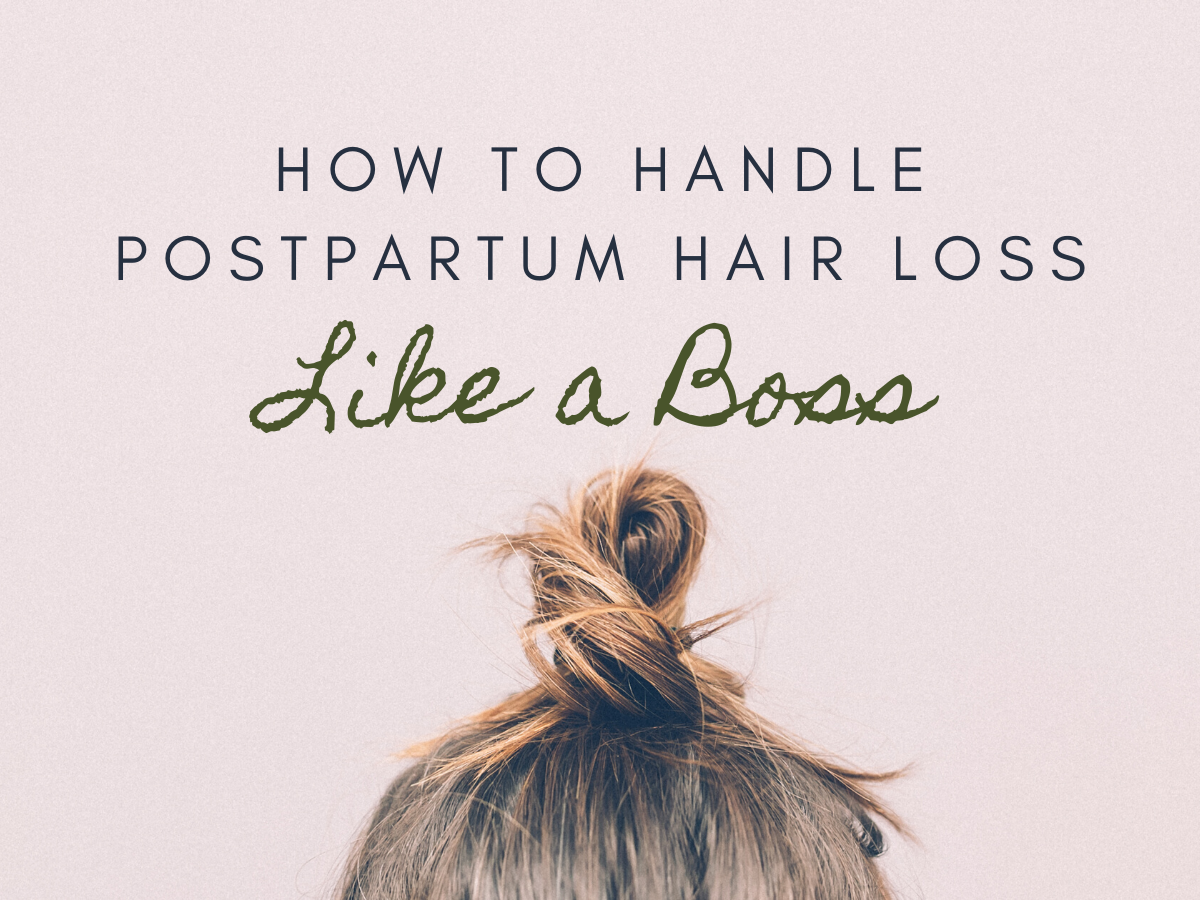Postpartum Hair Loss: How to Handle it Like A Boss
One Sunday morning, I began doing my normal weekend morning routine and started the day by detangling my hair. As I brushed through my hair, I started to notice chunks of my hair in my brush. Then, I looked at my hair and noticed how thin it was getting. The days of long thick hair from my pregnancy abruptly came to an end as I looked at a pile of hair on the floor. Of course I did what any sane woman would do, I freaked out! Was I going bald?!? Why was so much of my hair falling out? That’s when I realized that I was experiencing postpartum hair loss. I didn’t experience hair loss with my first pregnancy so it was a shock when it happened to me.
Unfortunately, postpartum hair loss is one of those post-baby nuances that many women experience. Some women experience minimal hair loss while others see a huge difference with significant thinning, especially around the perimeter of their head. Do you want to hear more bad news? There’s not much that you can do to prevent it. It’s just a part of postpartum recovery. But here’s some good news! Most women’s hair returns to their pre-pregnancy thickness by the time their baby turns one.

What causes postpartum hair loss?
The answer to that question is once again those lovely hormones. Dunning pregnancy, the rise of the estrogen hormone causes your hair to stay in the “growing” phase longer which results in that full, thick and luxurious hair that many pregnant women enjoy. Once you have your baby, your estrogen levels drop significantly to return to its normal levels. According to the American Pregnancy Association, up to 60% of your hair can return to the “resting” state which you may notice significant hair shedding 3 to 4 months postpartum. Luckily, most of the shedding returns to normal by 12 months postpartum.
What can I do about postpartum hair loss?
Postpartum hair loss isn’t fun for anyone who experiences it but there are some things you can do to limit the hair loss by taking extra special care of your hair as it works to get back to its normal state.

Maintain a healthy diet
Make sure your body is getting all of the nutrients it needs from a healthy and well-balanced diet. Some healthy foods that promote hair growth include eggs, fish and dark leafy greens such as spinach. It is also normally recommended to continue taking your prenatal vitamins after the birth of your baby which includes vitamins that promote hair growth.
Be gentle with your hair
Try to limit putting your hair in styles that may cause breakage such as braids and tight pony tails. Opt for styles that include the least amount of “hair touching”. Putting tension on your hair, especially around the perimeter of your head, when your hair is already in a fragile state could potentially cause additional damage and hair loss.
Limit the heat from blow dryers and irons- we all know that direct heat on your hair can cause heat damage. Reduce or eliminate heat from your daily hair routine to help strengthen your strands until they are back to normal.
Drink a lot of water
Drinking a ton of water keeps you hydrated from the inside out. Just like plants, drinking water helps your hair grow while dehydration can slow hair growth.
This too shall pass
As mentioned before, postpartum hair loss is inevitable for many women. Just remember that this is just a phase that will be over before you know it and soon enough, your hair will be back to normal.

